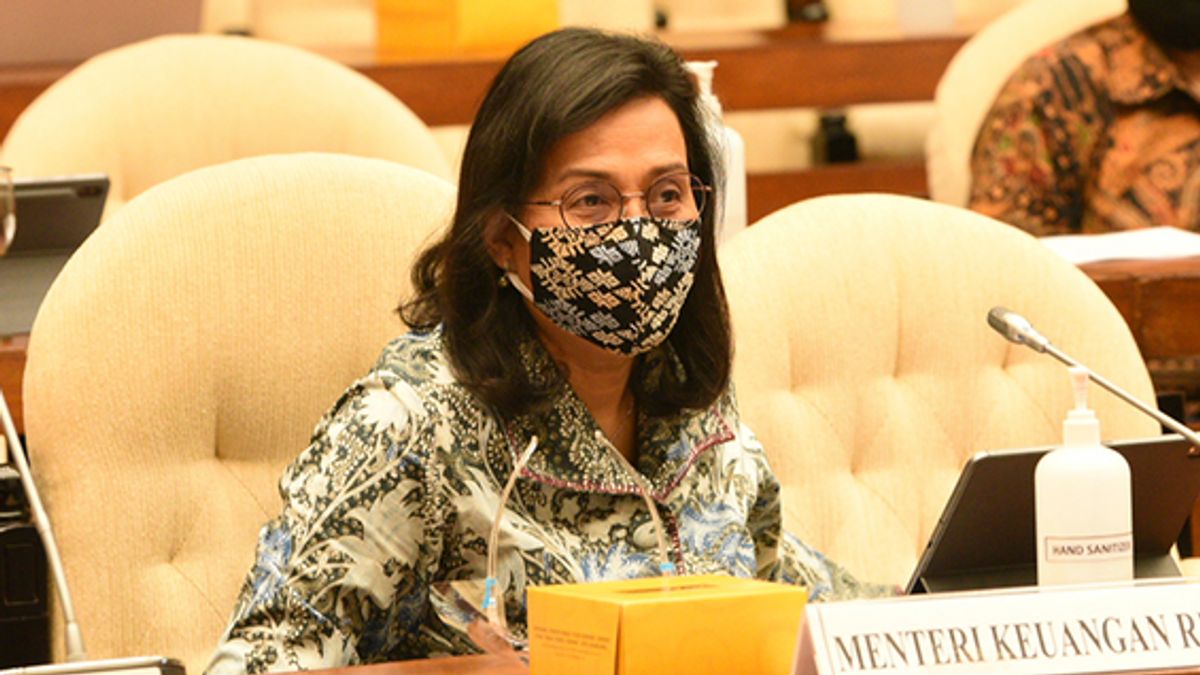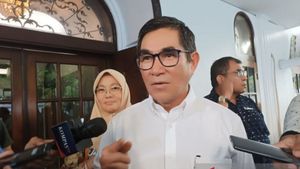JAKARTA - The revision of Law (UU) Number 23 of 1999 concerning Bank Indonesia (BI) is widely discussed. This is because in the regulation there is a proposal for the establishment of a Monetary Board which will be chaired by the Minister of Finance.
The position of the Monetary Board will be above BI. Later, the Monetary Board will lead, coordinate and direct monetary policy in line with the government's general policy in the government sector.
Minister of Finance Sri Mulyani spoke about the polemic on the formation of this Monetary Council. According to him, the government has not yet discussed the bill. In fact, the revision of the BI Law was an initiative of the House of Representatives (DPR).
Regarding the government's attitude towards the revision of the BI Law, said Sri, according to President Joko Widodo's direction, BI as the monetary authority must remain independent.
"The President's explanation regarding the government's position is very clear that monetary policy must remain credible, effective and independent," he said in a video conference, Friday, September 4.
The state treasurer said that BI and the government, in this case the Ministry of Finance, are jointly responsible for maintaining economic stability and confidence in order to advance the welfare, prosperity and justice of society.
"The government has the view that structuring and strengthening the financial system must prioritize the principles of good governance," he said.
For your information, in the draft BI Bill there are several articles that are in the public spotlight. One of them concerns the Monetary Board. Here is the sound of the article:
Article 7 paragraph 1 is added which previously read "The objective of Bank Indonesia is to achieve and maintain the stability of the rupiah value" then added the sentence "as well as to promote sustainable economic growth and job creation".
In addition, Article 7 is added another paragraph which reads "The monetary policy stipulation as referred to in paragraph (2) shall be carried out by the Monetary Board".
The independence of Bank Indonesia (BI) is in danger of being lost. This is reflected in the provisions of Article 9 which were abolished and in this bill an article regarding the authority of the monetary council was also added in the second amendment to Law Number 23 of 1999.
The provisions of Article 9 read:
"Other parties are prohibited from interfering in any form of interference in the implementation of BI's duties. BI is required to reject and / or ignore all forms of interference from any party in the framework of carrying out its duties".
"The provisions of Article 9 are deleted. Between Article 9 and Article 10 are inserted 3 (three) articles, namely Article 9A, Article 9B, and Article 9C," said the regulation, quoted by VOI, Wednesday, September 2.
Article 9A contains 5 paragraphs, namely:
(1) The Monetary Board assists the Government and BI in planning and stipulating monetary policy as referred to in Article 7.
(2) The Monetary Council shall lead, coordinate and direct monetary policy in line with the Government's general economic policies.
(3) The Monetary Council consists of 5 (five) members, namely the Minister of Finance and 1 (one) minister in charge of the economy; BI Governor and BI Senior Deputy Governor; as well as the Chairman of the Board of Commissioners of the Financial Services Authority.
(4) If deemed necessary, the Government may add several ministers as advisory members to the Monetary Board.
(5) The Secretariat of the Monetary Board is administered by BI.
Article 9B contains 3 paragraphs, namely:
(1) The Monetary Board is chaired by the Minister of Finance.
(2) The Monetary Council shall meet at least 2 (two) times a month or according to urgent needs.
(3) In discussions of a technical nature, members of the Monetary Board have the right to appoint expert advisors who can attend the Monetary Council sessions.
Then, Article 9C reads:
(1) Decisions of the Monetary Board are adopted by deliberation to reach consensus.
(2) If the Governor is unable to agree on the results of the deliberations by the Monetary Board, the Governor may submit his opinion to the Government.
(3) The rules and procedures for carrying out the work of the Monetary Board shall be determined by the Monetary Board.
The English, Chinese, Japanese, Arabic, and French versions are automatically generated by the AI. So there may still be inaccuracies in translating, please always see Indonesian as our main language. (system supported by DigitalSiber.id)













